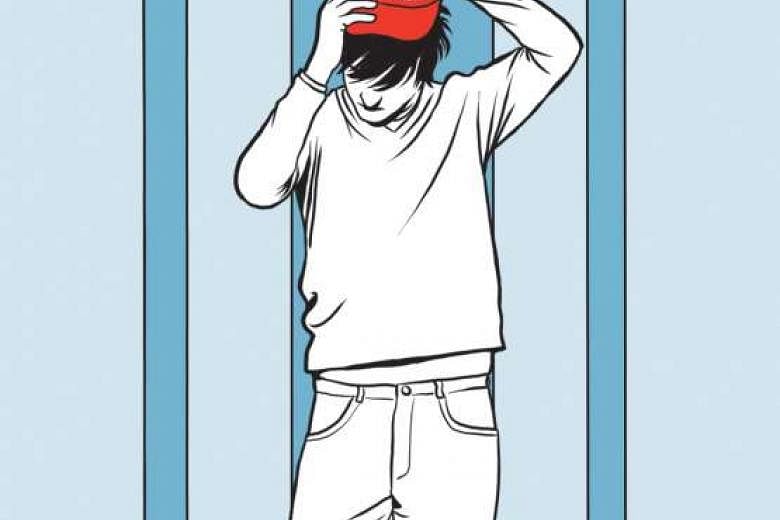The results of the recent United States presidential election have focused attention as never before on non-college-educated, white Americans. This is the group, so election data found, that did the most to propel Mr Donald Trump to a win which stunned the rest of America and indeed the world.
I know almost nothing about the lives of American heartlanders but, during the 2006 mid-term elections, I had an encounter with a group of Republican Party members in the state of Ohio that remains etched in my memory.
What was I doing in Ohio, a midwestern, Rust Belt state that few tourists from Singapore would have reason to visit? I was on a three-week tour of the US to observe its democracy in action, sponsored by the State Department, along with a dozen other journalists and politicians from countries in Asia, Africa and South America. Our trip began in Washington, DC, then took us to Columbus, Ohio; Denver, Colorado; Sacramento, California and finally, back east to Philadelphia where we watched the election results.
Nothing I saw or heard on that trip was as memorable as our visit to a bar in a neighbourhood of Columbus, Ohio, to witness a Republican Party rally for the state elections. We walked in to find middle-aged, white Americans drinking beer out of clear plastic cups and eating buffalo wings. It slowly dawned on us that we were the only non-white people there. As if to confirm that I - a young Chinese woman - was totally out of place, an older white woman turned to me and drawled in disbelief: "Ya mean ya're Republican?"
The rally proper began shortly after and a man who was running for the office of town sheriff pledged that, if elected, he would hang criminals "long and hard". I tried not to react as cheers and applause filled the room.
I recall this experience not to scoff at Trump supporters but to give a glimpse into the America we rarely see on TV or in movies, or read about in the pages of brandname newspapers. I confess I feel little connection to folk like those in that bar in Ohio, but meeting them has helped me understand that America is as much their home as it is home to my well-educated, multiracial friends who live in New York City and Palo Alto.

Here, I need to insert a caveat to say that older white folk were not the only ones to vote for Mr Trump. Young college-educated whites did so too, though not in such large numbers, as did some Hispanics and immigrants, including one Muslim immigrant woman who wrote about her choice.
Their reasons for doing so might differ but I believe New York Times columnist Thomas L. Friedman captured some of their anguish in a piece he wrote shortly after the results came in, entitled Homeless In America.
"My gut tells me," he wrote, "that it has much less to do with trade or income gaps and much more to do with culture and many Americans' feeling of 'homelessness'."
"There is nothing," he added, "that can make people more angry or disoriented than feeling they have lost their home. For some it is because America is becoming a minority-majority country and this has threatened the sense of community of many middle-class whites, particularly those living outside the more cosmopolitan urban areas.
"For others it is the dizzying whirlwind of technological change we're now caught up in. It has either wiped out their jobs or transformed their workplaces in ways they find disorienting - or has put stressful demands on them for lifelong learning. When the two most important things in your life are upended - the workplace and community that anchor you and give you identity - it's not surprising that people are disoriented and reach for the simplistic solutions touted by a would-be strongman."
What does it mean to feel homeless in your own country? Strangely, I think about the sympathy that the plight of refugees tends to stir among some well-educated folk like myself. In our minds and hearts, those who have fled war, persecution or famine in Syria, Libya, Myanmar or various parts of Africa are the ones in need of welcome and a home. But what about our fellow citizens who feel that the world they live in is changing in ways they cannot understand or keep up with? Do they too need to be assured that there is a place and a welcome for them in their own country?
Is assurance and help what these heartlanders feel they are receiving from elites? Or do they sense disdain instead, and a dismissal of their plight?
Often the disdain arises because more privileged members of society believe the worst of those who are poorer and less well schooled than they are, and vice versa. But not all heartlanders are racist, xenophobic or bigoted; in fact most Trump voters probably are not. Every society though has its share of bigots, and the tragedy is that the vote for Brexit and the election of Mr Trump as president will be exploited by a small number to justify their bullying of minorities.
I have learnt a lot about Americans who feel left behind from the dispatches of photojournalist Chris Arnade, a former Wall Street trader who quit after 20 years and now reports for The Guardian.
In a piece published two weeks ago, entitled What I Learnt After 100,000 Miles On The Road Talking To Trump Supporters, he wrote: "America has changed fundamentally over the last 35 years, and I saw and heard the impact of those changes. America had finally started upending a longstanding and ugly racial hierarchy, removing legal barriers that had made the playing field anything but level. For this, minorities overwhelmingly supported the new system, despite still suffering economically and socially more than white Americans.
"Yet we replaced that system with one based on schooling, building a playing field that was tilted dramatically towards anyone with the 'right' education. The jobs requiring muscle decreased (many going overseas) while the jobs requiring school increased. Compounding the pain from this, we started giving the winners a much larger share of the profits.
"The early Trump voters I met were the losers from these changes. Their once superior status - based only on being white - was being dismantled, while their lack of education was also being punished. They lived in towns and communities devastated by economic upheaval. They were born in them and stayed in them, despite their fall. For many, who had focused on their community over career, it felt like their entire world was collapsing."
This, Mr Arnade concluded, made the perfect setting for populist politics built on blaming minorities and immigrants.
What is the lesson here for Singapore? We too must guard against making segments of our society feel homeless in their own land. It is tempting to rush to label those who are different from us, but it is more fulfilling in the long term to stop instead, and listen to their stories and their concerns.
That paves the way for better understanding of one another, which must be the basis not just of policies to address the issues that matter to people but also of the human connections that can bridge the divides in our society.


